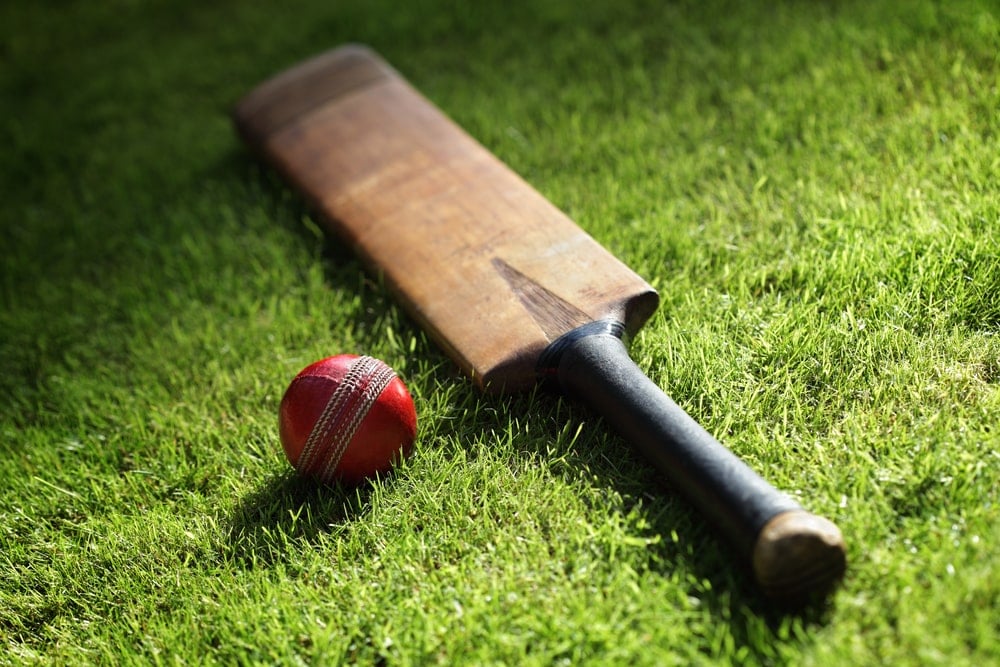“On behalf of all the boys … I thanked the bloke above.”
Sport and faith mix occasionally, and those words demonstrated that nexus when they were uttered by Steve Mortimer after seeing a picture that was taken with his eyes looking skywards after he had captained NSW to its first win in a Rugby League State of Origin series in 1985.

Other players occasionally look up when they are part of great moments in League or other sports.
Former Australian Test opening batsman Matthew Hayden is a committed Catholic who was an Ambassador for World Youth Day 2008 and would make the Sign of the Cross for all to see each time he scored a century.
“When I am in trouble, I ask ‘What would Christ do’,” was a line he once dropped to further outline his commitment.
Golfer Aaron Baddeley also advertised his Christian involvement, thanking God for his first win in the Australian Open when aged only 18 – and he was especially proud that his initial US PGA Tour victory in the Heritage Classic came on Easter Sunday in 2006.
Hopeful newcomer to America’s National Football League and former Parramatta rugby league star, Jarryd Hayne says faith helped him decide to chance making it overseas, where experts say his undoubted talents will be well-tested in reaching the final cut in the season ahead for the San Francisco 49ers.
Behind the many instances of sporting success there are an increasing number of disturbing stories which a more direct involvement by those who are skilled in imparting the messages of faith could be able to help address.
“Chaplains are a much-needed resource but to my way of thinking probably not used enough – or even at all – by many sports and organisations,” wrote Melbourne Storm coach Craig Bellamy in a recent newspaper column.
Canberra Raiders appointed Fr, now Mons, John Woods as their chaplain in 1986 soon after they entered Australia’s major rugby league competition but Bellamy is right in assessing that such skills are often missing from top level sport.
The Sports Chaplaincy Association of Australia boasts 180 people in these roles, apparently often confined to the lower ranks of competition.
Skills from those of faith could be well-placed to assist professionals, especially young players seeking a balance between the overwhelming joys of winning and the dashed hopes of losing and often fearing that their careers may end at a time of life when those of their mates in the general workforce are just getting underway.
Coach Bellamy wrote that while the NRL and other clubs have the services of welfare officers, chaplains are people he regards as trained professionals who should be capable of dealing with some of the deleterious mental health issues that have sadly seen some players take their own lives.
Those deaths are felt across the community, but can have their greatest impact on the players with whom the victims have served.
I recently reflected on Bellamy’s words while listening to some radio debate over changes to forms being supplied to parents of children in NSW government schools where the promotion of ethics classes is being given preference over offers of religious instruction.
An interesting contrast emerged between the skills of committed Christian communicators who were seen as assisting professional sports people to strike sensible mental balances when facing stress, and the blatant attempts to reject those possessing at least some knowledge of faith-based assistance from being involved in the education system.
Catechists may not be as well trained as chaplains, but they carry messages of faith and the love of God into schools where young people sometimes suffer from problems such as depression that are not necessarily linked to sporting prowess.
Some of those who have that quality in rugby league will line up this week to play out the deciding match in another evenly-balanced State of Origin series.
In most cases we will be left to ponder whether faith is part of their journey as it was for Steve Mortimer.
He recently reflected: “Without sounding corny, I was saying my prayer to God … I had the privilege of representing our team in receiving the trophy, but I also had my faith.”
